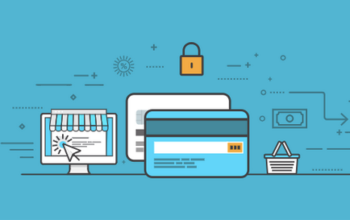The Covid-19 pandemic changed life as we know it for everyone. Whilst most of us were forced to scale back our professional and personal lives due to shutdowns and restrictions, there’s one group that have stepped up their game quite considerably.
The pandemic has seen incidents of cybercrime grow at an alarming rate. It appears hackers and fraudsters have been working overtime to target private individuals and businesses during this period of uncertainty. Restrictions may now be easing week-on-week, but the pandemic has given everyone a lot to think about when it comes to data privacy.
The rise (and rise) of cybercrime
According to the Cyber Security Breaches Survey 2020, 46% of businesses suffered a cyber breach or attack during 2020, with some even experiencing issues as often as once a week. This figure has risen dramatically, with just 22% of organisations reportedly falling victim to cybercrime in 2017.
The same study documented a substantial rise in phishing attacks, which increased from 72% in 2017 to 86% in 2020. This technique was favoured even beyond the usual viruses and malware generally employed by hackers to steal data, with incidents dropping from 33% to just 16%.
Why have attacks risen so dramatically?
There are several reasons why cybercrime and associated data breaches and attacks have increased during the pandemic. One major contributing factor is the sheer number of employees that have had to work remotely due to Covid-19 restrictions and office closures.
The uncertainty of these times and the fragmentation of close contact between IT teams and other departments has led to new and increased assaults from cyber attackers. Remote workers represent an easy target for hackers because their network connections may not be as secure as those in the office and their adherence to information security best practice may be weakened in the domestic setting.
Without direct support from their employers and guidance from their fellow colleagues immediately to hand, remote workers are particularly vulnerable, and easier to manipulate into handing over sensitive information and passwords.
The use of short term fixes by the remote workforce is another reason why cybercrime has risen. The companies they work for have been quick to use ad hoc and untested data protection techniques, which have, in some cases, had the opposite impact when safeguarding against threats.
How can I boost data privacy and security for my workers?
Leaving the office shouldn’t mean leaving your data privacy and security behind, too. It’s not too late to put measures in place to protect your remote workers from breaches and attacks, especially if you’re continuing to allow your employees to work from home. Here are few pointers on how to take data privacy in hand:
- Conduct a risk assessment to pinpoint the weaknesses that could leave your workers vulnerable.
- Close these loopholes using endpoint security solutions to secure your infrastructure.
- Invest in employee training and education with regards to social engineering and phishing attacks, whilst also outlining the company’s approach to data protection.
You should also look at the bigger picture, especially if you are operating globally, as better data security doesn’t always mean improved data privacy. Taking the time to investigate and research the best data privacy software solutions can help to dramatically reduce issues relating to data processing for organisations of all shapes and sizes.
While the Covid-19 pandemic has been incredibly tough for thousands of enterprises around the world, it’s important to remember that threats to information security don’t disappear when the office doors are closed. If anything, they grow substantially. That means that businesses must take a proactive rather than a reactive approach to their data protection.
Related Posts












